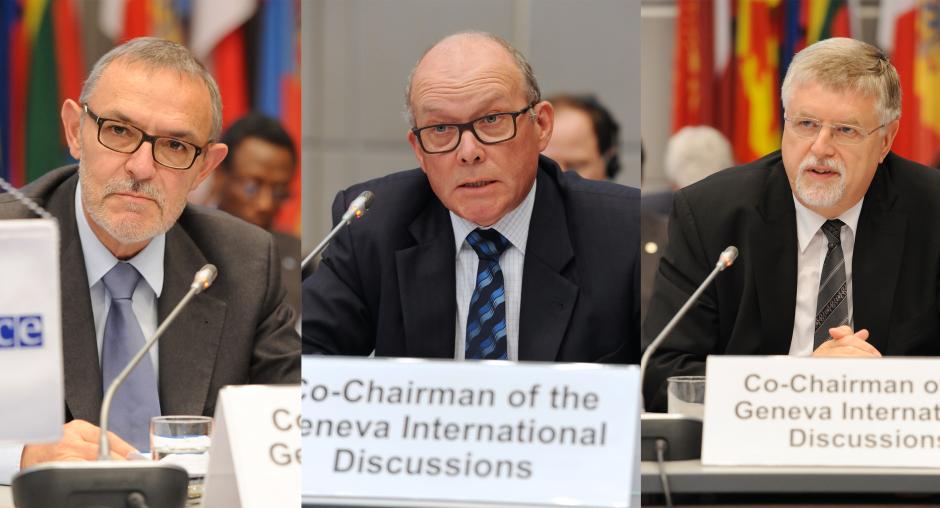Geneva International Discussions remain unique and indispensable forum, Co-chairs tell OSCE Permanent Council

VIENNA, 6 November 2014 – When addressing the OSCE Permanent Council in Vienna today, the co-chairs of the Geneva International Discussions (GID) stressed that the Geneva process is the only platform bringing together all stakeholders to discuss security-related issues and to work on the humanitarian needs of the conflict-affected population. The co-chairs urged participants in the GID to work constructively in order to achieve progress in addressing the consequences of the 2008 conflict in Georgia.
The Geneva Discussions were launched six years ago and bring together participants from Tbilisi, Moscow, Washington, Tskhinvali and Sukhumi.
The co-chairs, OSCE Special Representative Angelo Gnädinger, UN Representative Antti Turunen and EU Special Representative Herbert Salber assessed the current security situation on the ground as generally calm and stable.
“The work done within the meetings of the Incident Prevention and Response Mechanism (IPRM) and through the “hotline” facilitated by the EU Monitoring Mission to Georgia (EUMM) to ensure dialogue between security stakeholders on the ground, has been instrumental in this regard,” said Ambassador Gnädinger, Special Representative of the Swiss OSCE Chairperson-in-Office for the South Caucasus.
Ambassador Salber, European Union Special Representative for the South Caucasus and the Crisis in Georgia, pointed to the continued relevance of the GID. “The latest round of the GID showed the potential of the process,” he said.
Ambassador Turunen, United Nations Representative to the Geneva International Discussions, referring to the recent debate on the wider implications of bilateral, multilateral and other agreements, stated that the GID provide a useful platform to discuss, multilaterally and bilaterally, all possible political and security-related concerns of participants.
The co-chairs highlighted increasing restrictions of the freedom of movement due to the progressive consolidation of the administrative boundary lines (ABL) as a key concern. They called for renewed efforts among the participants of the Geneva process to address humanitarian issues, including the situation of internally displaced persons and refugees, cases of missing persons, refurbishing of water-related infrastructure and the preservation of cultural heritage.
